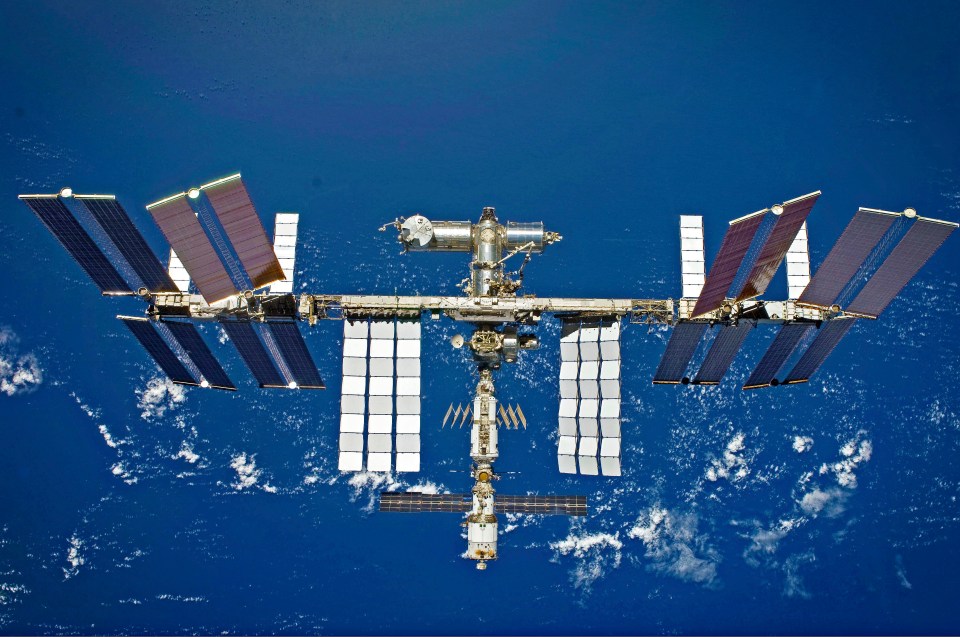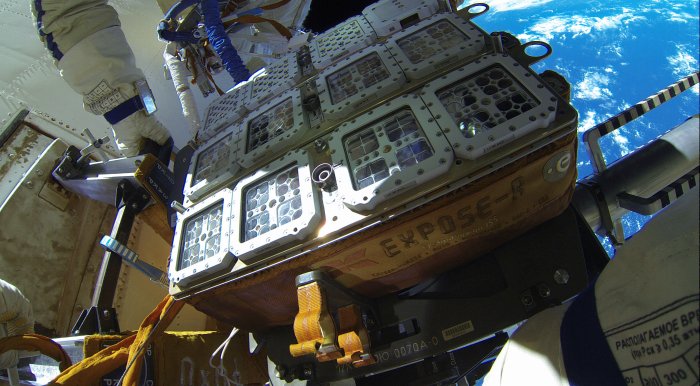Strange Earth organisms survive ‘extreme radiation’ and space vacuum outside ISS – giving hope for life to exist on Mars
Scientists tested the space survival skills of tiny organisms

OUR chances of finding life on Mars have been boosted thanks to a groundbreaking new experiment.
Scientists showed that certain simple organisms found on Earth can survive the red planet's brutal conditions for months on end.
They stuck a canister filled with microbes to the outside of the International Space Station (ISS), exposing them to cosmic radiation and the vacuum of space for 18 gruelling months.
Some of the tiny creatures survived, proving that similar life could be hiding out on the red planet.
The research was led by boffins at the German Aerospace Centre (DLR) in Cologne.
"Some of the organisms and biomolecules have shown tremendous resistance to radiation in the open space and actually returned to Earth as 'survivors' of space," said DLR scientist Dr Jean-Pierre Paul de Vera.
He added that certain single-cell organisms "would be candidates for life forms that we could imagine on Mars."
The "Biomex" experiment tested the space survival skills of microscopic organisms like bacteria, algae, lichens and fungi.
They were exposed to vacuum, extreme UV radiation and drastic temperature differences on an ISS outdoor platform for a total of 533 days.
A Soyuz rocket capsule carried the microbes back to Earth in 2016.
Space experts have long argued whether life could survive the punishing conditions on Mars.
Anything living on the planet's surface would be subject to intense radiation and temperatures that seesaw from highs of 20°C to lows of −153 °C.
The new study suggests life could withstand the planet's climate – though it doesn't prove that Martians are out there.
"Of course, [our research] does not mean that life really happens on Mars," Dr De Vera said.
"But the search is now more than ever the most powerful driving force for the next generation of space missions to Mars."
The result adds a bit of weight to the theory that life on Earth actually came from Mars.
Experts think our neighbour was home to microorganisms nearly 4billion years ago, and that an asteroid strike sent some flying into space aboard chunks of Martian rock.
These chunks then collided with an early version of our planet, depositing the microbes and leaving the foundations for all life on Earth.
Scientists had previously doubted whether any life could survive the perilous trip from Mars, but the DLR study shows some organisms are more than capable.
The results were published in the journal .
TOP STORIES IN SCIENCE
If you enjoyed this story, you might also like these:
Nasa on course to find ALIEN life ‘within next few decades’ – but warns we’re ‘unlikely to shake hands with aliens’.
Aliens may be hiding on a ‘freezing, shadowy world’ just six light years from Earth, scientists claim.
Experts think aliens will ‘probably fire space LASERS’ at us – rather than visiting from Super Earth planets.
Do you think there's life on Mars? Let us know in the comments!
We pay for your stories! Do you have a story for The Sun Online news team? Email us at [email protected] or call 0207 782 4368 . We pay for videos too. Click here to upload yours.








